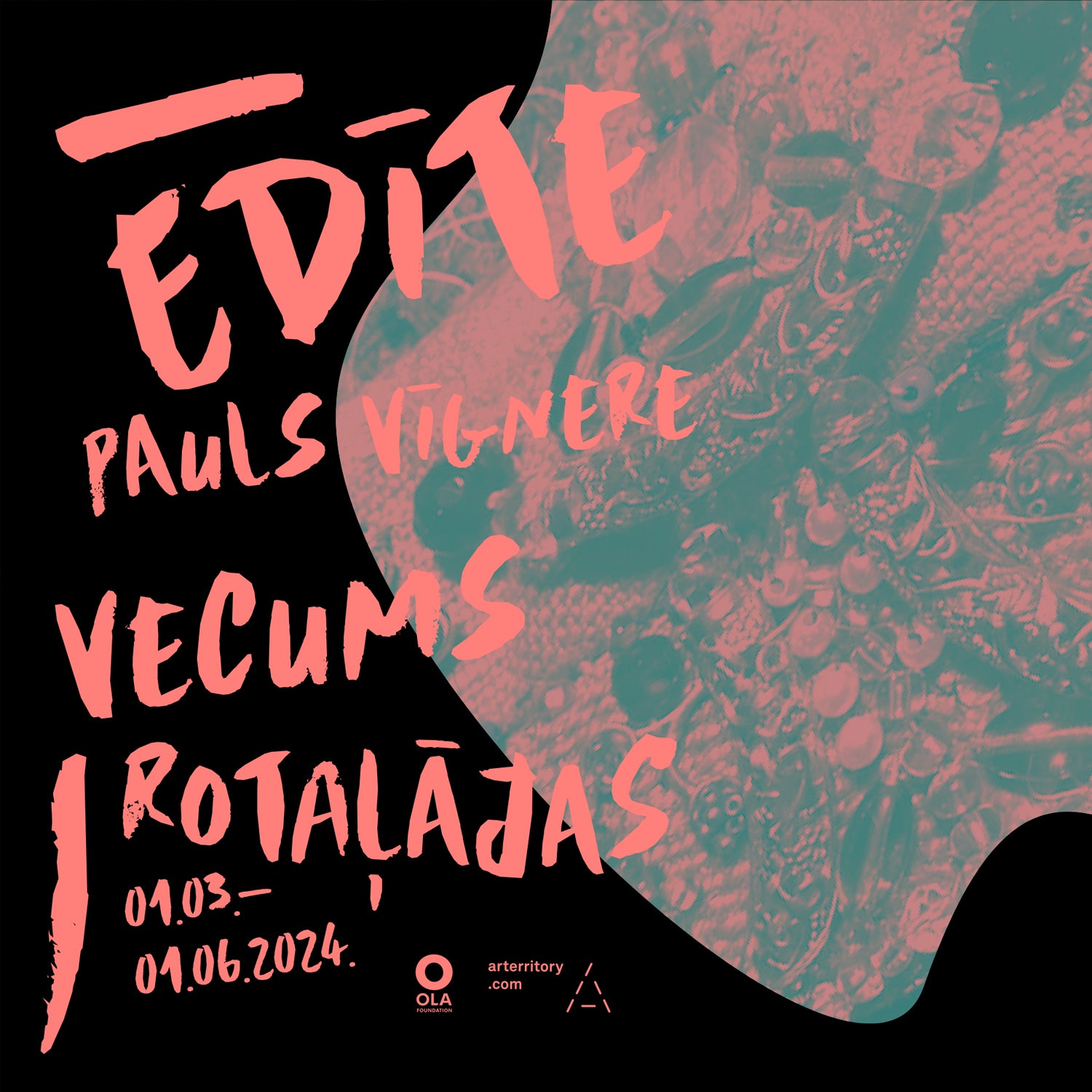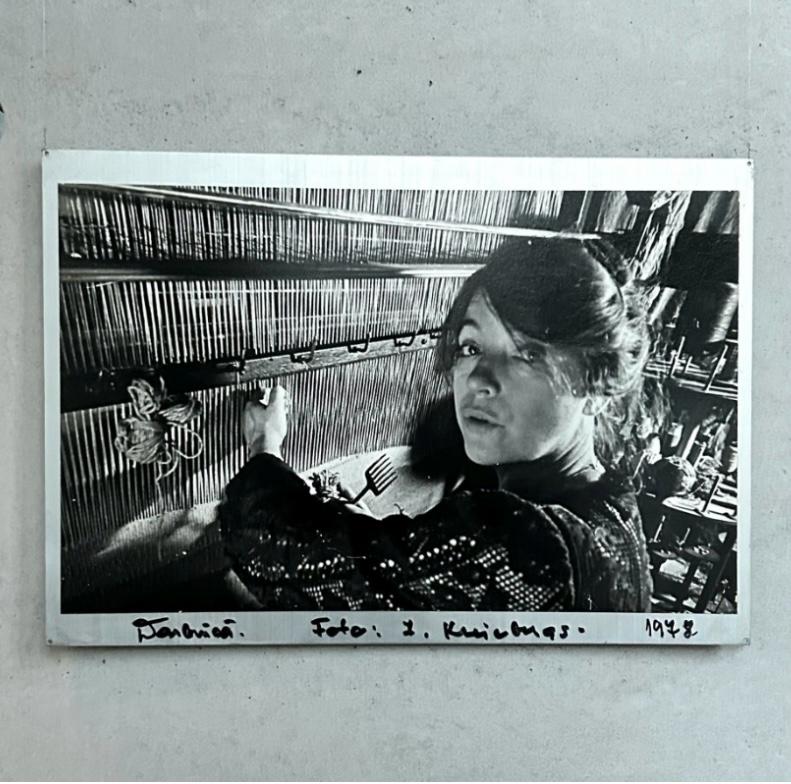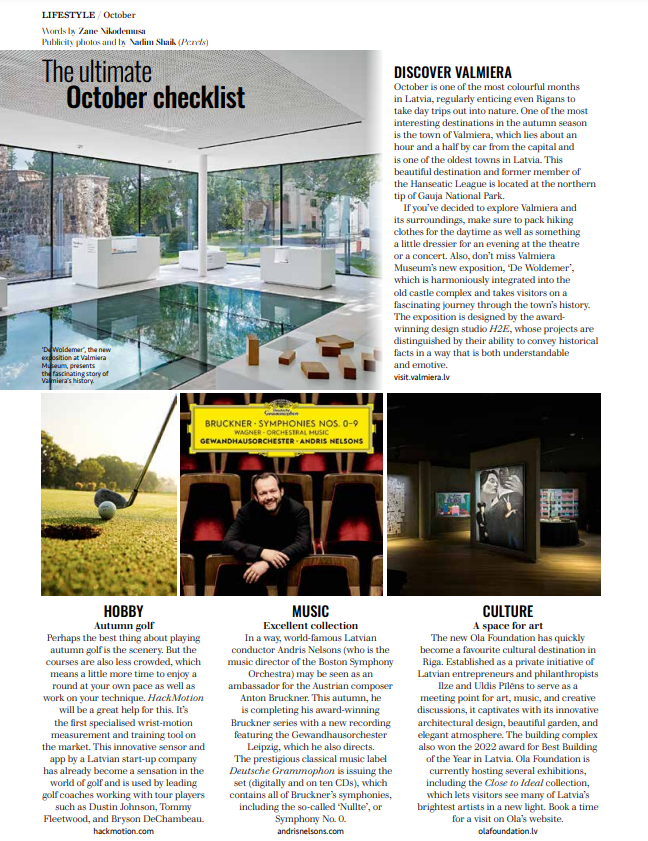Exhibition by textile artist Edīte Pauls-Vīgnere at the Ola Foundation from March 1 to June 30
From March 1 to June 30, the Ola Foundation will host an exhibition by textile artist Edīte Pauls-Vīgnere, in which her work will be accompanied by assemblages created by her son, Pauls Vīgners.
Edīte Pauls-Vīgnere is one of the most striking and appealing figures of the Latvian art scene of the second half of the 20th century. Her creativity, expression, narratives, multi-layeredness, ambition and formal innovation have left their mark far beyond the strictly defined genre boundaries of textile art (although she is closely associated with the processes that underpinned the establishment of the Textile Art department at the Art Academy of Latvia in 1961, an event that made the textile medium a significant presence in the Latvian art space). She is a significant and brilliant phenomenon in the history of Latvian visual art. In today’s context, with textile art being back in the spotlight, Edīte’s boundless creativity and her hands’ ability to create energetically charged, multi-layered objects and images confirm her status of superiority. She is comparable in importance to another artist from Eastern Europe, Magdalena Abakanowicz from Poland (whose exhibition, as Edith recalls, she rushed to see at what was then called the Museum of Border Art in Riga), who is admired by today’s European art circles.
Edīte continues to work creatively, the only difference being that her once gigantic formats have sublimated into more concentrated volumes. Today she no longer sits at the huge loom made by her father – which was designed to make no noise, no clattering – so that Edith could listen to music while ‘in the process’. Now she spends her nights at the table she inherited from her mother – gluing, sewing, fixing, folding... The table is loaded with beads, glass, lace, scraps of cloth, candy wrappers...an almost unimaginable array of objects and trinkets. A little girl’s dream playground. ‘Just don’t throw the wrappers out,’ she instructs us as we treat ourselves to sweets. She is still playful, sparkly, and finds peace in listening to Sufi music and watching the dervishes whirling on her monitor. ‘Age is at play,’ says Edith with a smile – the title of the exhibition is her idea, as it most accurately captures the feeling she is living and experiencing right now.
The starting point of the exhibition was the desire to discover a lesser-known facet of Edīte Pauls-Vīgnere – to steer the viewer away from Edīte’s customary artistic narrative, one in which we see at work popular images that are familiar to so many from their childhood and youth. The two-storey exhibition at the Ola Foundation partly continues the retrospective element so familiar and customary in the context of Edīte’s solo exhibitions, giving the viewer the opportunity to see three of her earliest works – Invasion, Tropics and Apocalypse. Yet these ghouls, snakes and butterflies that bulge out far beyond the two-dimensional plane – works that do not allow for them to be directly and clearly defined, and that balance on the edge between moulding, tapestry, assemblage and object – are perhaps not what we associate with the ‘usual’ Edith.
‘My works are nothing but my experiences.’ They can be travel notes, moments of emotional highs, socio-political events, and even grief. The passing of her son Pauls Vīgners, aka Uli, was a hard blow. It was to him that Edith would turn to for advice when she wanted to talk about her work, and she always appreciated the value of his remarks. He studied music, but at Edīte’s urging, turned to assemblage, in which he then integrated another of his passions: radio chips.
Age at Play has been architecturally designed as an exhibition on two levels, where on each storey the viewer enters a ‘core’ – being among Edīte’s works and surrounded by a ‘shell’, i.e. things that have happened, and are happening, around her. The ‘shell’ of the historical works is composed of photographs taken by Jānis Kreicbergs in 1978: Edīte, magically witch-like, weaving, ironing, and dyeing yarn like a fireball, whereas the ‘shell’ of the present works are Pauls Vīgners’ assemblages – they are constantly with Edīte in her Art-Nouveau flat with wine-coloured walls, where in her workroom she sits at a round table throughout the night, creating imprints of her emotions. Never call her before three in the afternoon. She likes the dark and the night – saturated silence, with no unnecessary noises.
***
Curated by Daiga Rudzāte and Una Meistere
Graphic design by Kirils Kirasirovs
Exhibition designer / Martins Vizbulis
The exhibition is a collaboration between the culture and art portal Arterritory.com and the Ola Foundation
Published Artteritory.com



